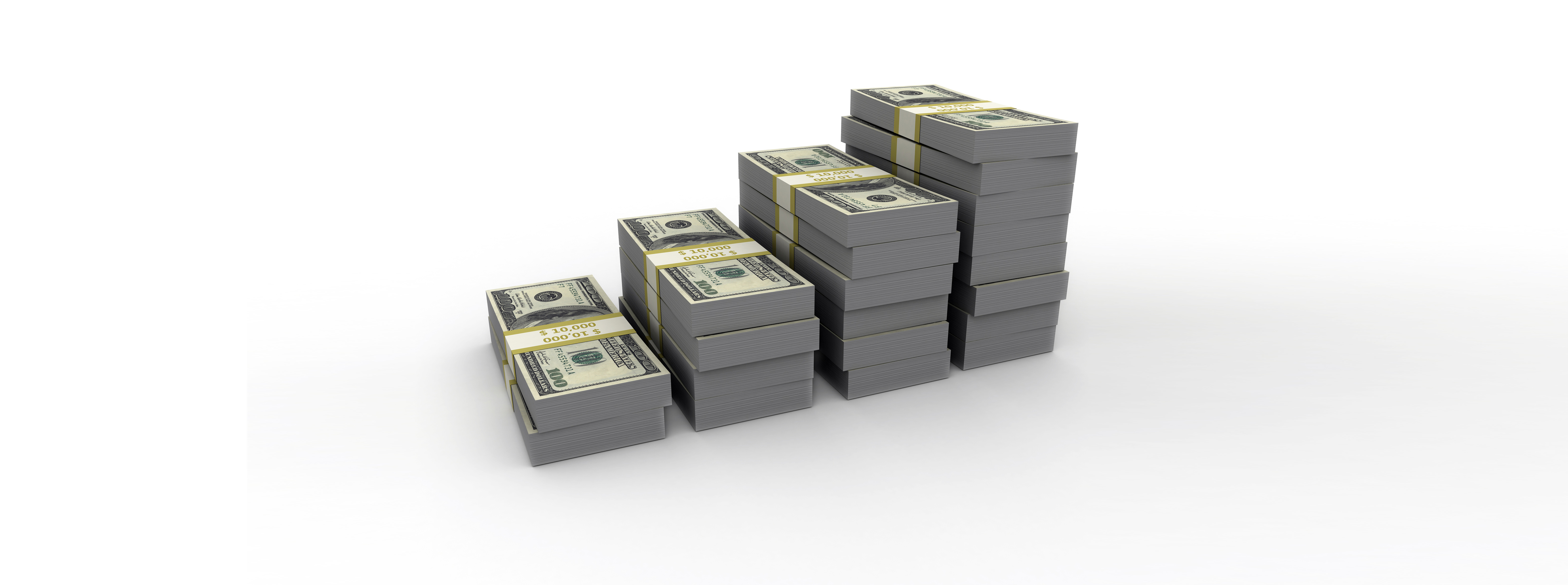The power of saving 1 percent more
And more of the week's best financial advice

A free daily email with the biggest news stories of the day – and the best features from TheWeek.com
You are now subscribed
Your newsletter sign-up was successful
Here are three of the week's top pieces of financial advice, gathered from around the web:
The power of saving 1 percent more
Financial New Year's resolutions need to be concrete if you're going to succeed, said Sarah Skidmore Sell at the Associated Press. "So if saving more is your aim this year, try this more specific goal on for size — set aside just 1 percent more for retirement." While the rule of thumb is to save 10 to 15 percent, that is often too much for people just starting out or who are facing an uptick in expenses. But small, automatic withdrawals can still make a big difference down the road. For someone who is 25 and earns $40,000 a year, saving an extra 1 percent monthly in a 401(k) amounts to roughly $33 a month. "But it will mean an added $3,970" each year at retirement. Then, you can build on the goal next year, bumping up your savings another 1 percent.
The Week
Escape your echo chamber. Get the facts behind the news, plus analysis from multiple perspectives.

Sign up for The Week's Free Newsletters
From our morning news briefing to a weekly Good News Newsletter, get the best of The Week delivered directly to your inbox.
From our morning news briefing to a weekly Good News Newsletter, get the best of The Week delivered directly to your inbox.
Don't ditch your index fund
"It's that time of year when financial advice sites issue their lists of the 'Stocks to Buy for 2017,'" said Damon Darlin at The New York Times. But before you call your broker, let's consider how these experts' suggestions fared in 2016. The S&P 500 stock index increased 9.5 percent. Forbes' 2016 list of recommendations, by comparison, grew about 7 percent, Kiplinger's "about half that." One suggested portfolio on CNBC did slightly better at 10.6 percent, but still fell short of index funds like Vanguard's Total Stock index, which returned 12.5 percent to investors last year. "As you can see, even when the stocks are recommended by professional money managers and filtered through some of the best financial journalists, they don't do as well as the averages."
Time for a debt checkup
With interest rate increases on the horizon, it's a "good time to size up your borrowings," said Suzanne Woolley at Bloomberg. If your credit card balances are below $16,000, the national mean for households with debt, or your total household debt, including mortgages, is less than $132,500, congratulations — your debt is below average. But even if you are in relatively good shape financially, now is a still good time to aggressively pay down remaining obligations. The Fed looks poised to raise interest rates several times this year. "As interest rates rise, so will monthly payments on revolving debt." One smart use for a raise or holiday bonus is to buy more financial flexibility by paying down high-interest debt. "Where else can you get a 15.2 percent return — the national average credit card rate, according to CreditCards.com — on your money?"
A free daily email with the biggest news stories of the day – and the best features from TheWeek.com
-
 6 of the world’s most accessible destinations
6 of the world’s most accessible destinationsThe Week Recommends Experience all of Berlin, Singapore and Sydney
-
 How the FCC’s ‘equal time’ rule works
How the FCC’s ‘equal time’ rule worksIn the Spotlight The law is at the heart of the Colbert-CBS conflict
-
 What is the endgame in the DHS shutdown?
What is the endgame in the DHS shutdown?Today’s Big Question Democrats want to rein in ICE’s immigration crackdown